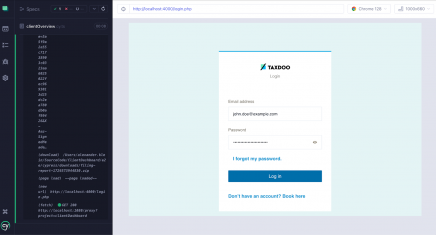
Emotional Intelligence – A Toolkit for Software Engineering
More articles

- 3 April 2024
- Taxdoo Engineering
Developing Resilience – A Toolkit Based on Real Life Scenarios
Did you know that we receive 11 million bits of information every second, but the executive, thinking centers of our brain can effectively process only 40 bits of information? Shawn Achor, co-founder of the Institute for Applied Positive Research and author of The Happiness Advantage stated so in the Harvard Business Review, highlighting the importance […]

- 3 April 2024
- Martin Vassilev
Move in the Right Direction: Top Tips for Tech Professionals on World Mental Health Day 2024
Mental health at work: it’s a topic we’re used to hearing about. But how can we actually make space in our working lives to promote our mental wellbeing? What risks are there? Let’s consider the risks posed by our jobs. Yes, as developers or tech professionals, there are inherent risks posed by our chosen trade! […]

- 3 April 2024
- Alexander Klein
Cypress Best Practices & Troubleshooting
We at Taxdoo use an array of testing techniques: unit tests, integration tests, end-2-end tests, contract testing, browser-based tests, tests against Docker environments as well as tests against real AWS environments, canaries, … and of course some manual testing when automating a test simply isn’t feasible. Looking at the possible techniques, browser-based testing often gets […]